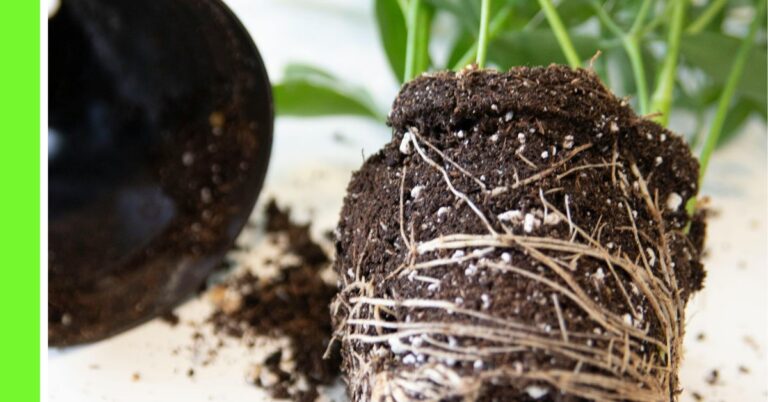Organic Methods of Controlling Weeds

Weeds are one of the biggest challenges in agriculture, competing with crops for nutrients, water, and sunlight.
Farmers in Nigeria and across the world seek sustainable and eco-friendly ways to control weeds without harming the environment.
This article explores organic methods of controlling weeds, their benefits, and how to make organic herbicides at home.
What Are Weeds?
Weeds are unwanted plants that grow in farmlands, gardens, and other cultivated areas.
They compete with crops for nutrients, water, space, and sunlight, which can reduce agricultural yields.
Weeds can also harbour pests and diseases, further affecting crop productivity.
Some common weeds in Nigeria include spear grass (Imperata cylindrica), goat weed (Ageratum conyzoides), and nut grass (Cyperus rotundus).
What Are the Different Methods of Controlling Weeds?
Before we focus on organic weed control let us briefly mention other weed control methods.
There are several methods of weed control, which can be broadly classified into the following categories:
- Cultural Methods – These involve farming practices that naturally suppress weed growth, such as crop rotation, intercropping, and cover cropping.
- Mechanical Methods – These involve the physical removal of weeds using tools like hoes, weeders, and hand-pulling.
- Chemical Methods – The use of synthetic herbicides to kill weeds. While effective, this method can lead to soil and water pollution.
- Biological Methods – The use of natural enemies like insects, fungi, or animals to suppress weed growth.
- Organic Methods – These involve natural weed control techniques that do not rely on synthetic chemicals.
What Is Organic Weed Control?
Organic weed control refers to the practice of managing weeds using environmentally friendly and sustainable methods.
The goal is to suppress weeds while maintaining soil health and crop productivity.
Organic weed control methods reduce reliance on chemical herbicides, promote biodiversity, and enhance soil fertility.
Other Terms for Organic Weed Control
- Natural Weed Management
- Eco-Friendly Weed Control
- Biological Weed Suppression
- Sustainable Weed Control
- Chemical-Free Weed Management
- Green Weed Control
What Are the Organic Methods of Weed Control?
Organic weed control methods involve techniques that prevent, suppress, or eliminate weeds without using synthetic herbicides.
These methods are environmentally friendly and improve soil health.
Some of these methods are:
1. Mulching
Mulching involves covering the soil with organic materials such as straw, leaves, grass clippings, or wood chips. This suppresses weed growth by blocking sunlight and preventing weed seeds from germinating.
2. Hand Weeding and Hoeing
Manual removal of weeds using hands or simple tools like hoes is an effective organic method, especially in small-scale farms and gardens. Regular weeding helps prevent weeds from spreading.
3. Cover Cropping
Planting cover crops like cowpeas and groundnuts helps smother weeds by out-competing them for nutrients and sunlight. Cover crops also improve soil fertility and structure.
4. Crop Rotation
Changing the type of crops grown in a field every season disrupts the life cycle of weeds and reduces their ability to establish and spread.
5. Flaming
This method uses a flame weeder to expose weeds to high temperatures, causing their cells to burst. It is most effective on young weeds and should be used with caution.
6. Boiling Water
Pouring boiling water directly onto weeds destroys their cell structure, effectively killing them. This method is particularly useful for weeds growing on sidewalks and driveways.
7. Vinegar and Natural Herbicides or Weedicide
Household vinegar (acetic acid) is an effective organic weed killer. When applied directly to the leaves, it dehydrates the weed and kills it.
8. Solarization
Soil solarization involves covering the soil with a transparent plastic sheet to trap solar heat. This process kills weed seeds and pathogens, making it a useful weed control technique.
9. Companion Planting
Certain plants naturally repel weeds by releasing allelopathic chemicals. For example, marigolds can suppress the growth of some weeds in vegetable gardens.
How to Make Organic Herbicides
Organic herbicides can be made from natural ingredients available at home or in local markets. Here are some DIY recipes:
1. Vinegar Herbicide
Ingredients:
- 1 litre of white vinegar
- 2 tablespoons of salt
- 1 teaspoon of liquid dish soap
Instructions:
- Mix the vinegar, salt, and dish soap in a spray bottle.
- Shake well and spray directly onto the weeds on a sunny day.
- Avoid spraying on desired plants as vinegar can affect them too.
2. Lemon Juice Herbicide
Ingredients:
- Fresh lemon juice (or lemon concentrate)
- White vinegar (optional)
Instructions:
- Squeeze fresh lemon juice and pour it into a spray bottle.
- Spray directly onto weeds for an acid-based weed killer.
- You can mix it with vinegar for stronger effects.
3. Saltwater Herbicide
Ingredients:
- 1 cup of salt
- 2 liters of water
Instructions:
- Dissolve salt in water and apply it to weeds.
- Use with caution as excessive salt can affect soil fertility.
Advantages of Organic Weed Control
Environmental Impact:
Organic weed control methods, such as mulching, hand weeding, and using natural herbicides, reduce pollution and maintain the health of ecosystems. They avoid the harmful effects of chemical herbicides on soil and water.
Soil Health:
Organic methods, like crop rotation and cover crops, help improve soil structure, increase organic matter, and support beneficial soil organisms, leading to healthier, more fertile soil in the long run.
Health Benefits:
By avoiding synthetic chemicals, organic weed control ensures that food crops grown in these systems are free from chemical residues, offering safer produce for consumers.
Biodiversity Support:
Organic weed control promotes biodiversity by allowing for a greater variety of plants to grow, which in turn supports a diverse range of insects and wildlife, including pollinators.
Sustainability:
Organic weed control methods can be more sustainable in the long term, as they focus on preventative measures and natural alternatives rather than heavy reliance on synthetic inputs.
Limitations of Organic Weed Control
Labor Intensive:
Organic weed control often requires more manual labour, including hand weeding, mulching, or hoeing, which can be time-consuming and physically demanding, particularly for large fields.
Less Immediate Results:
Organic methods may not offer as quick a resolution as chemical herbicides, and weeds might return more rapidly if not managed consistently and correctly.
Limited Options for Large-Scale Farming:
On large agricultural operations, organic methods may not be feasible on a large scale without significant investment in labour and equipment to handle the increased workload.
Higher Costs:
Organic herbicides and other natural alternatives may be more expensive than chemical herbicides, making the cost of organic weed control higher for farmers in some cases.
Effectiveness Variability:
Not all organic methods are equally effective for every type of weed or in every climate. For example, natural herbicides may not be as potent as chemical ones in certain situations, leading to a lack of control over stubborn weeds.
Requires Knowledge and Expertise:
Successful organic weed control requires specialized knowledge and an understanding of local weed species, ecosystem interactions, and how best to implement organic practices effectively.
Conclusion
Weed control is a vital aspect of agriculture in Nigeria, and organic methods provide a sustainable alternative to synthetic herbicides.
Techniques like mulching, crop rotation, manual weeding, and natural herbicides help keep weeds in check while protecting the environment.
By adopting organic weed control methods, farmers can improve soil health, enhance crop productivity, and contribute to sustainable farming practices.
Hope this article was helpful.






